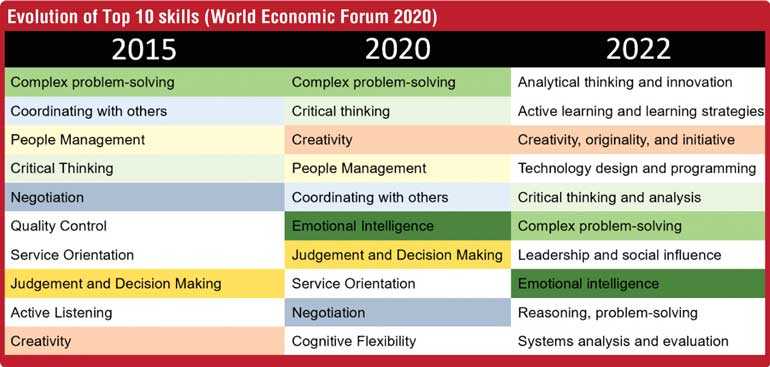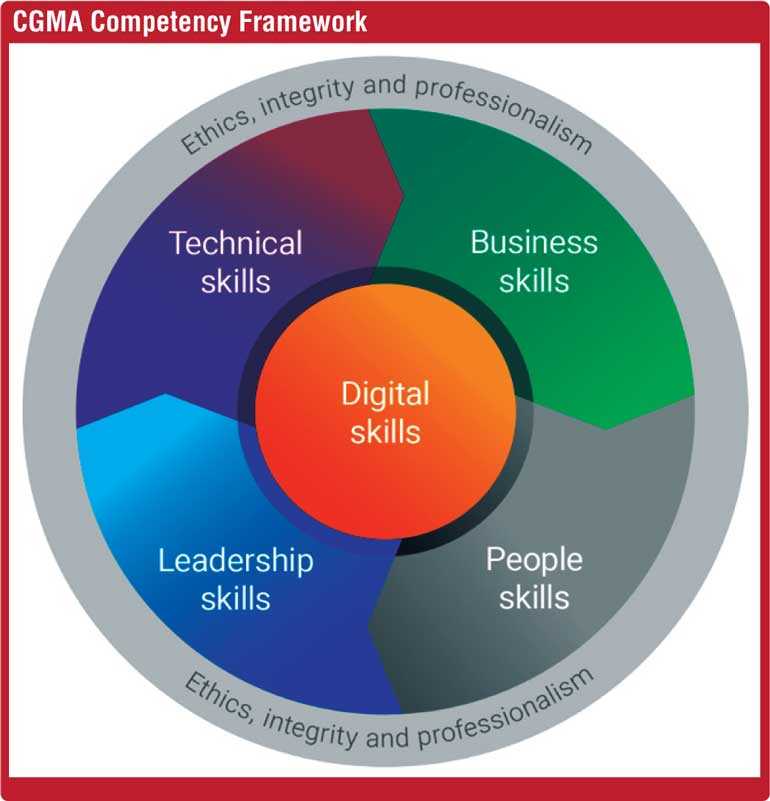Sunday Feb 22, 2026
Sunday Feb 22, 2026
Wednesday, 15 July 2020 00:00 - - {{hitsCtrl.values.hits}}


July 15th is World Youth Skills Day, one of the UN International days of observance which was initiated by none than Sri Lanka. Established in November 2014, the representative of Sri Lanka highlighted the  importance of youth skill development at a global level, and the resolution on this holiday was adopted almost unanimously.
importance of youth skill development at a global level, and the resolution on this holiday was adopted almost unanimously.
The high levels of youth unemployment and underemployment is an acute problem across the world. More so today than ever before, with the impact of the pandemic effecting not just those in the developing countries but across the globe. Recognition of this problem and implementation of different programs aimed at enhancement of youth’s ability to make informed life and work choices, as well as be trained in relevant skills is critical for all governments, economies and societies.
This topic holds dear to my heart, as frequently I speak to various students – be they at schools, universities or at professional institutes. Whilst my intention at such times is to promote the qualification that changed my life and paved my way to success, it is also meant to help them understand the need of the hour - to invest in skills that will make them future ready, be employable and of use to our nation and the world.
Research and statistics
Verité Research, with support with the USAID funded YouLead program, released a thought-provoking report and recommendation in their Youth Labour Market Assessment in 2018. The assessment noted that youth unemployment in Sri Lanka is directly connected to poor school-to-work transition, and they also found that youth aspire to jobs that complement their existing skills, and facilitate safe working environments.
We are well aware of Sri Lanka’s statistics of having less local University slots compared to our Advanced Level students. It is also well known that most of our rural youth tend to move towards blue-collar work. Early this year, Minister Bandula Gunawardana spoke about increasing university intakes by 25% (181,000), and that new chartered Universities will be opened in Sri Lanka. Well and good if it does happen, but until then, what about our youth? This article is meant to explore some critical skills that our youth of today need to be successful in the professional sphere in these extraordinary times. I have mapped this to the Chartered Global Management Accountant (CGMA) Competency Framework, to showcase the exact skills where emphasis is needed.
Skills for tomorrow
The world we live in at present is a much different place, with the pace of change being at the highest it has ever been. Not just in comparison with the earlier generations, but also technologically, as well as changes in human nature. The World Economic Forum’s change of top 10 skills over the last 5 years shows this clearly.
The youth of today need digital skills as well human skills to work in a future that has humans and machines working side by side. Let me explore this with how CIMA has taken a gigantic step in helping the youth and professionals of today build relevant skills that will assure their employability.
The Future of Finance research conducted by The Association of International Certified Professional Accountants, the unified voice of CIMA and the American Institute of CPAs, explored these aspects whilst in discussion with 5500 industry experts and professionals across the globe (https://www.cimaglobal.com/Documents/Future%20of%20Finance/future-re-inventing-finance-for-a-digital-world.pdf). Through scientific study, the many rule-of-thumb working methods have been turned into laws, formulas and new ways of thinking. These changes are reflected in the competencies and mindset that employers will in future expect of a professionally qualified management accountant in the digital world.
CGMA Competency Framework – skills for tomorrow’s professionals
The research also helped us update the CIMA syllabus, and thereby to enhance the employability of students and members. It intends to create a learning system that enables students to acquire skills, competencies and mind-sets that are in high demand by employers.
The CGMA Competency Framework (https://www.cgma.org/resources/tools/cgma-competency-framework.html) is designed to help management accountants and their employers understand the knowledge requirements and assess the skills needed for both current and desired roles. This enables them to get resilient and ready with the insights and skills needed to flourish in a dynamic and rapidly evolving business landscape with assets and tools such as the Digital Mindset Pack, which harnesses the Association’s future-focused product range from blockchain to robotics to artificial intelligence, the future-ready bundle which will ensure one can lead the transformation.
Underpinned by the need for objectivity, integrity and ethical behaviour, and including a continuous commitment to acquiring new skills and knowledge, this is the foundation that will demonstrate the relevance and capabilities of a CGMA as a trusted finance and business strategist. The activities in which professionals currently spend their time, depending on their role within the organisation is anticipated to alter as technology and digitalisation continue to affect the role of every professional. In an increasingly digital world, professionals need mind-sets and behaviours to deal with complexity, work in an agile way, be creative and be committed to lifelong learning — to learn, unlearn and relearn to ensure relevance. The framework supports the concept of lifelong professional learning and experience.
The 5 skills are:
Technical skills that enable, in our case, finance professionals to collect, store, process and analyse information to be shared with various stakeholders. These include the preparation and dissemination of external and internal reports as per the professional accounting standards.
Business skills enable professionals to use their knowledge of the business and the ecosystems in which it operates to transform data into insights. This allows businesses to evaluate their strategic positioning, the alignment of their business models to their strategies, their performance and opportunities for the future.
People skills and the ability to communicate effectively are used to influence the decisions, actions and behaviours of decision-makers and others throughout the organisation and its stakeholders. The ability to collaborate and work with partners is also a key skill.
Leadership skills take place at various levels. Three types of leadership can be identified as peer, functional and strategic. Peer leadership involves leading peers in and out of the finance function on issues that require an understanding of the financial implications of events and issues in the organisation’s internal and external operating environments. Functional leadership refers to the leadership that ensures the finance function delivers its objectives to the organisation. It takes place from the intermediate level onward, but mostly at the advanced level. Strategic leadership is exercised at the strategic level. Experts join with leaders in other functional areas to define, formulate and oversee the implementation of the organisation’s strategy.
Digital skills are essential for all professionals and especially those in finance, from basic digital literacy through to a deeper expertise in cloud computing, cybersecurity, data analytics and digital costing. If finance professionals are to remain relevant, they need to keep pace with advances in technology and be able to manage and guide the finance function in a digital world. As well as being a standalone knowledge area, digital skills permeate throughout the other knowledge areas.
Employability of today’s students, especially local university graduates
One thing I firmly believe in is that this crisis has also brought in great opportunities for our youth. They are now more digitally literate. Teachers and tutors who used to abhor virtual teaching have had to embrace it and share their knowledge in a different way. Today, there are many online learning opportunities available at lower cost from across the world and these aren’t just the professional qualifications but also certifications.
We will all need to become lifelong learners. On average, as per WEF, employees will need 101 days of retraining and up-skilling in the period up to 2022. Emerging skills gaps, both among individual workers and among companies’ senior leadership, may significantly obstruct organisation’s transformation management. Depending on industry and geography, between one-half and two-thirds of companies are likely to turn to external contractors, temporary staff and freelancers to address their skills gaps. A comprehensive approach to workforce planning, reskilling and up-skilling will be the key for positive, proactive management of such trends.
Exploring what skills would be highly demanded in the post-COVID market, the focus has moved to skills that weren’t necessarily needed or emphasised before. Digital skills is a must and now needed even more and as implored before, CIMA syllabus revised to include this last year as finance and business management professionals need a Digital Mindset too. But it’s not just about digital – we need to have human intelligence skills too. In summary, we will need a mix of human and digital skills for our future with special emphasis on being agile, awareness of how we respond to change and ambiguity, our digital readiness and of course a mindset that helps data-driven decision making.
Invest today
For those youth hoping to make use of this time as an investment, it is best to invest this time in studies or gaining new skills that are a must in today’s world. Not to sound prejudiced, I would say complete a professional qualification like CIMA, a certification in digital skills such as data visualisation, RPA, data analytics and it will help you get ahead of the rest by the time the world picks up, as you’ll be either part or fully qualified. A qualification like CIMA that helps you complete the exams from home or wherever you may be will also showcase to future employers that you are serious about your career and professional development.
Utilise this time to the maximum. The world will bounce back and when it does, our business/ corporate world will need skilled resources, to help their businesses move forward. Those who invest in skills needed for today and the future will stand out. Concentrate on professional qualifications/ gaining new skills that employers have said are required for the future.
Gig workers
The gig economy is going to be big in the future. We have seen how today’s employers have struggled with their workforce – at times unable to cope with technologies or with redundant skills, and they’ll start looking for gig workers. Look at those opportunities and skill up in those areas. As we at CIMA say, re-imagine your career and the time for that is now.
The writer, ACMA, CGMA, PMP, MBA, is the Country Manager of CIMA Sri Lanka